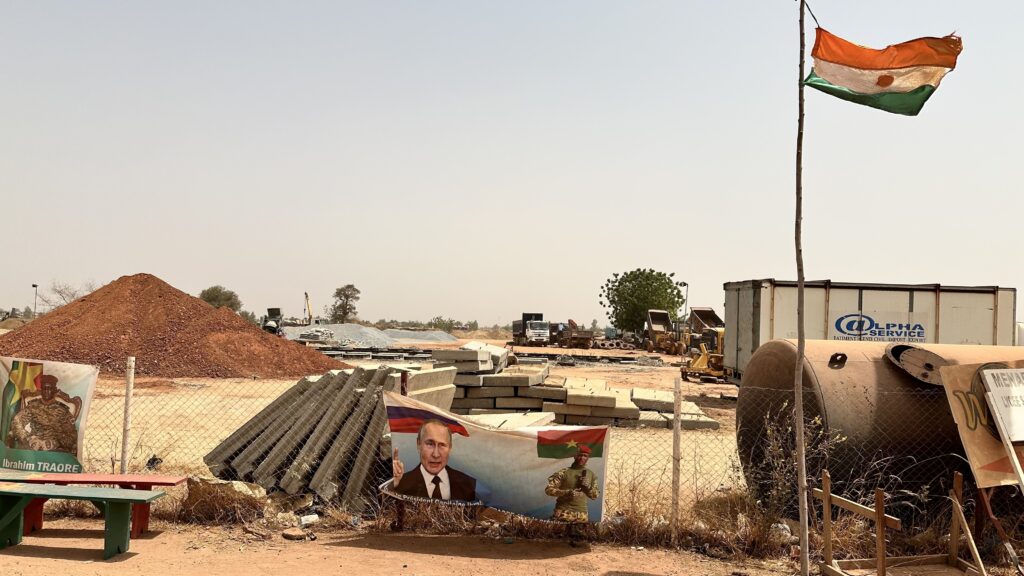Analyses / Africa/s
18 November 2025
Mali, Burkina Faso and Niger: From Enthusiasm to Disillusionment

Central Sahel (Mali, Burkina Faso, Niger) is facing an entanglement of social, economic, demographic, climatic and political crises that feed into one another and have deeply destabilised the region. The failure of public policies, rising poverty, explosive demographic growth, climate vulnerability, ethnic and religious tensions, the rise of extremism, the erosion of public freedoms and institutions under increasingly authoritarian regimes, as well as foreign interference, have created an unstable and dangerous environment. Most territories now escape state control, violence against civilians is soaring, and part of the youth, deprived of prospects, is turning towards radical movements.
This chaotic situation has opened the way for foreign powers pursuing divergent interests, reinforced the rejection of Western models, and turned the Sahel into a new epicentre of ideological confrontation and armed conflict. Faced with the risk of widespread regional destabilisation, neighbouring States must protect themselves against spillover effects in order to contain the rise of authoritarian regimes and fundamentalist religious movements.
The fading illusion of the juntas and the security collapse
The initial euphoria that accompanied the overthrow of democratic regimes in Mali, Burkina Faso and Niger has given way to a grim reality: far from delivering the promised stability, the juntas have in fact exacerbated state fragility and facilitated the advance of jihadist groups. In Mali, as Francis Laloupo explains, the military junta has “acted as an ally – albeit involuntary but nonetheless objective – of jihadist terror”, multiplying repressive measures and institutional ruptures that have weakened the State in the face of the growing influence of the Group for the Support of Islam and Muslims (JNIM/GSIM), which now threatens even the capital Bamako by controlling fuel supplies and triggering economic asphyxiation. This situation, directly fuelled by post-coup instability, echoes developments in Niger and Burkina Faso, where the refusal of regional and international cooperation, combined with new partnerships with Russia or China, has in no way resolved the security crisis but has instead aggravated it, as evidenced by the desperate militarisation of administrations and the seemingly inevitable abandonment of territory to armed groups.
The striking silence of once-triumphant pan-Africanist voices
At the time of the coups, the dismantling of democratic systems, the subjugation of the judiciary and the press, and the departure of French forces, a large part of the pan-Africanist voices on television, social media and in opinion pieces celebrated the “liberation” of Mali and then of the Sahel, calling for an end to supposed Western domination and for the adoption of “African solutions”.
Yet, in the face of an obvious security collapse, the illusion of a return to democratic life, and growing dependence on Moscow, those same voices – intellectual, activist or popular – have fallen silent, rarely assuming responsibility for the consequences of the current chaos.
As Hervé Mahicka (expert on governance and development strategies) points out, pan-Africanism is increasingly reduced to a blind and visceral rejection of the West – especially France – and to a superficial form of neo-sovereignism, while remaining silent on the need for genuine regional integration, which is nonetheless essential in the long term. In practice, anti-imperialist rhetoric has merely replaced one dependence with another, and has paved the way for jihadist expansion.
A concluding assessment: from enthusiasm to disillusionment
The current tragedy in Mali, Burkina Faso and Niger starkly contrasts with the hopes voiced by certain commentators and radical activists who have been particularly vocal since 2020, both in Africa and in the West. Those who rejoiced at the departure of Western actors, the severing of ties with African regional organisations, the return to illusory “sovereignty”, and the superficial partnerships with Russia are now nowhere to be seen, unable to defend political choices whose consequences for populations are now undeniable: deepening chaos, institutional collapse, loss of legitimacy, a security apparatus in retreat, and a regional dynamic in disarray.
The present silence of advocates of a performative, superficial pan-Africanism reveals a profound crisis of credibility for an ideology that has failed the test of reality.

